How to take hardwood cuttings like a pro – to double your garden for free
Taking cuttings is the best way to fill your garden with new shrubs, bushes and even trees without any costs
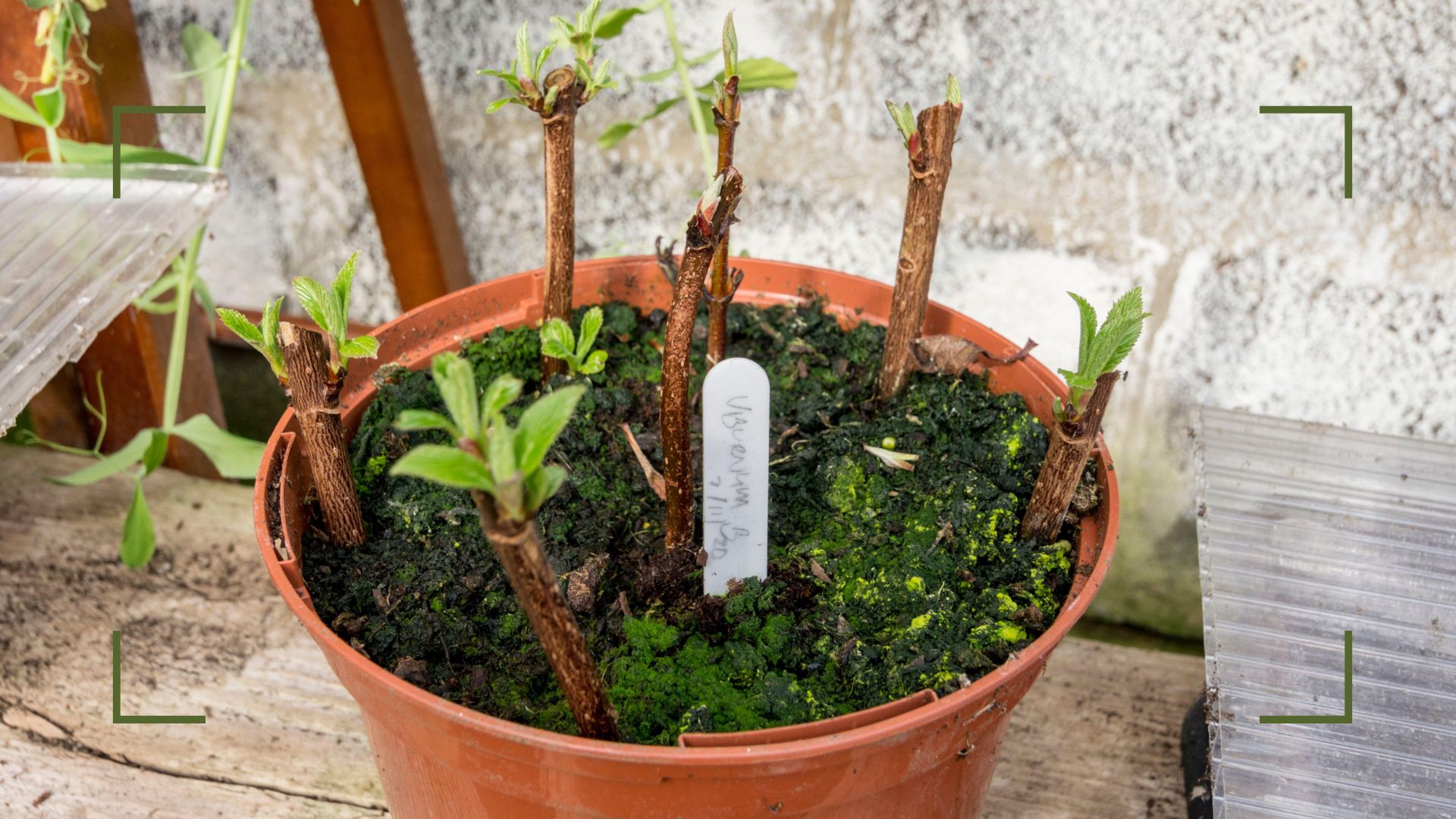

If there's one thing we learned from The Secret Garden, it's this: showing your outdoor space some TLC when it's cold and grey outside is the best way to ensure it thrives come springtime. And what better way to do so than by learning how to take hardwood cuttings?
Monty Don has long been a fan of taking hardwood cuttings; in fact, the gardening guru has declared it one of the most important gardening tasks to tackle in November (alongside learning how to overwinter lavender and overwintering olive trees).
Why? Because, just as any gardener worth their salt should know how to deadhead plants properly, collecting hardwood cuttings is one of those sustainable garden ideas that will have your outdoor space looking beautiful – and for free, no less.
How to take hardwood cuttings
Learning how to take hardwood cuttings from hydrangeas, fruit bushes, roses, and any other flowering shrub or tree is a surefire route to success.
Unlike growing plants from seed taking hardwood cuttings is the best way of reproducing your favourite garden plants – because it ensures your new plant is exactly like the established parent plant.
The additional benefit of this essential plant propagation tip is that it is easy and free to do, with no extra equipment or shelter required.
What you will need
As mentioned already, learning how to take hardwood cuttings is one of those nifty gardening tasks that doesn't require bags of equipment; all you really need are some gardening gloves, sharp secateurs or loppers, and a deep pot filled with very gritty compost.
Sign up to our free daily email for the latest royal and entertainment news, interesting opinion, expert advice on styling and beauty trends, and no-nonsense guides to the health and wellness questions you want answered.
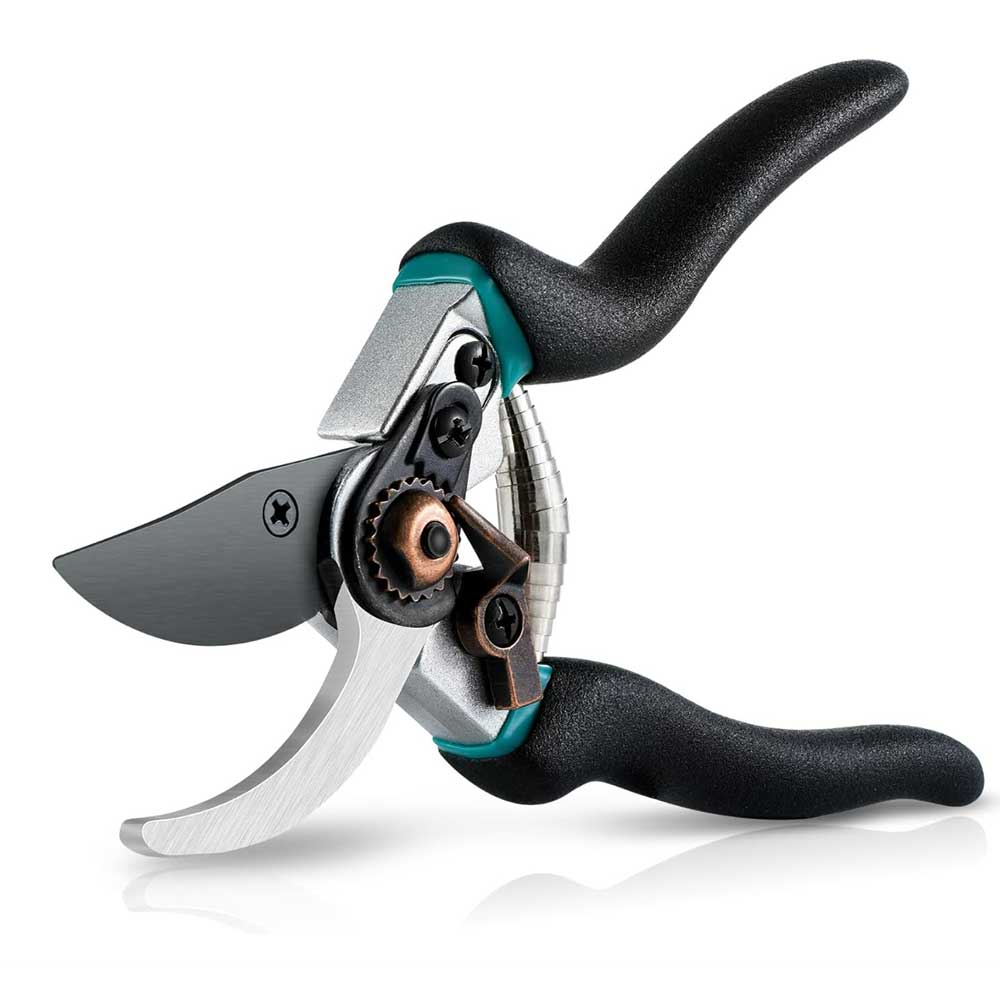
RRP: £8.92 | If you're planning on taking hardwood cuttings, you'll need a sharp pair of secateurs – and these feature high-strength carbon steel blades, making them ideal for the job.

RRP: £12.13 | Ergonomically designed for added comfort, these stylish gardening gloves make taking cuttings a doddle.
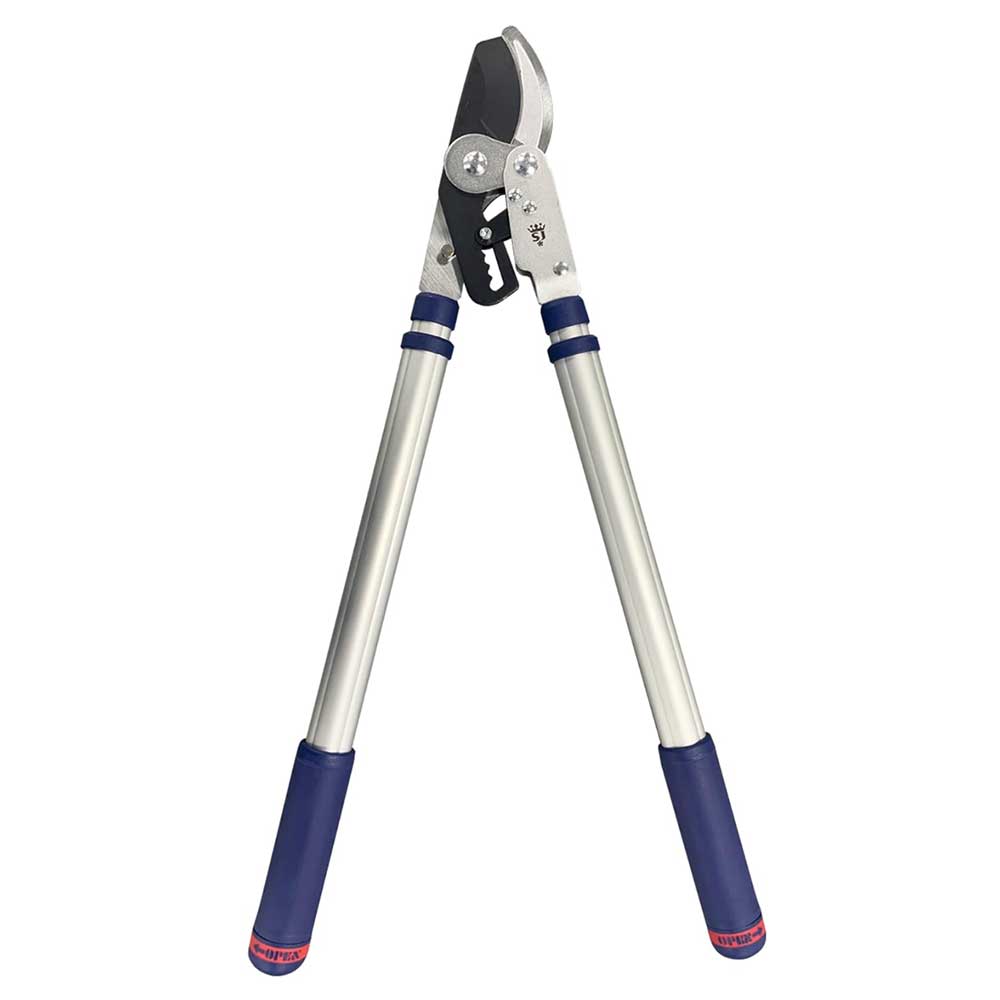
RRP: £32.95 | If you're tackling harder-to-reach branches, these telescopic loppers are definitely up to the task.
Some gardeners also suggest using a rooting hormone (like Doff 75G-Ke075 Natural Rooting Powder 75G, White from Amazon), but this is entirely optional.
Step-by-step guide
"Taking hardwood cuttings isn't just a reliable way to propagate your favourite shrubs, trees, and climbers; it's also a fun thing to do come the late autumn or winter, when it's all the more important to get out and soak up some vitamin D," says Christopher O'Donoghue, one of the co-directors at Gardens Revived.

A gardener with almost two decades of experience under his belt, Christopher set up Gardens Revived with his brother, Andrew, in 2018 to create a thriving family business. Together, they have worked on residential gardens, listed buildings and gardens, flower shows and large estates with some exceeding 70 acres – many with historical significance.
With that glowing endorsement in place, then, here's how to take hardwood cuttings like a pro...
1. Get selective

You will want to be just as selective with the plants you decide to take cuttings from, opting for deciduous fruit bushes, roses, flowering shrubs or trees.
"I like to take hardwood cuttings from currants, roses, forsythia, dogwood, willow, and viburnum," muses Christopher.
2. Choose healthy wood
Unlike when pruning roses or other shrubs when taking hardwood cuttings, the general advice is to look for one-year-old wood that is firm, straight, and disease-free.
"The stems should be about the same width as a pencil," adds Christopher.
3. Make your cut
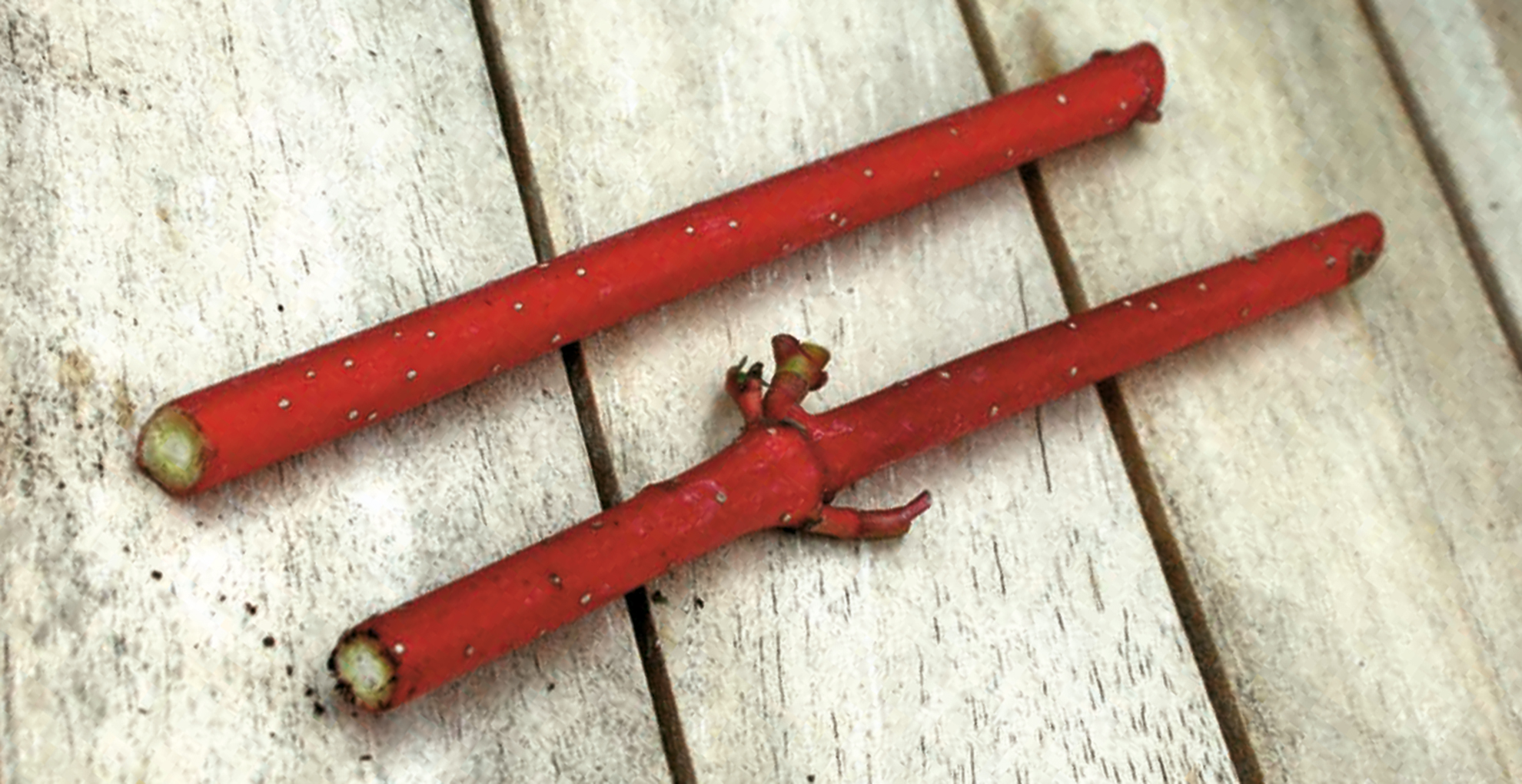
To ensure your hardwood cuttings are effective and destined for success, you can't just chop any old bit off; there are rules to bear in mind.
"Take a 6–12-inch length of the stem, and make a slanting cut at the top (just above a bud) and a straight cut at the base (just below a bud)," advises Christopher.
Once this is done, you'll want to remove any remaining leaves or side shoots, leaving the stem bare – and you can dip the base of the cutting into a rooting hormone powder if you like, although this is entirely optional.
4. Get planting
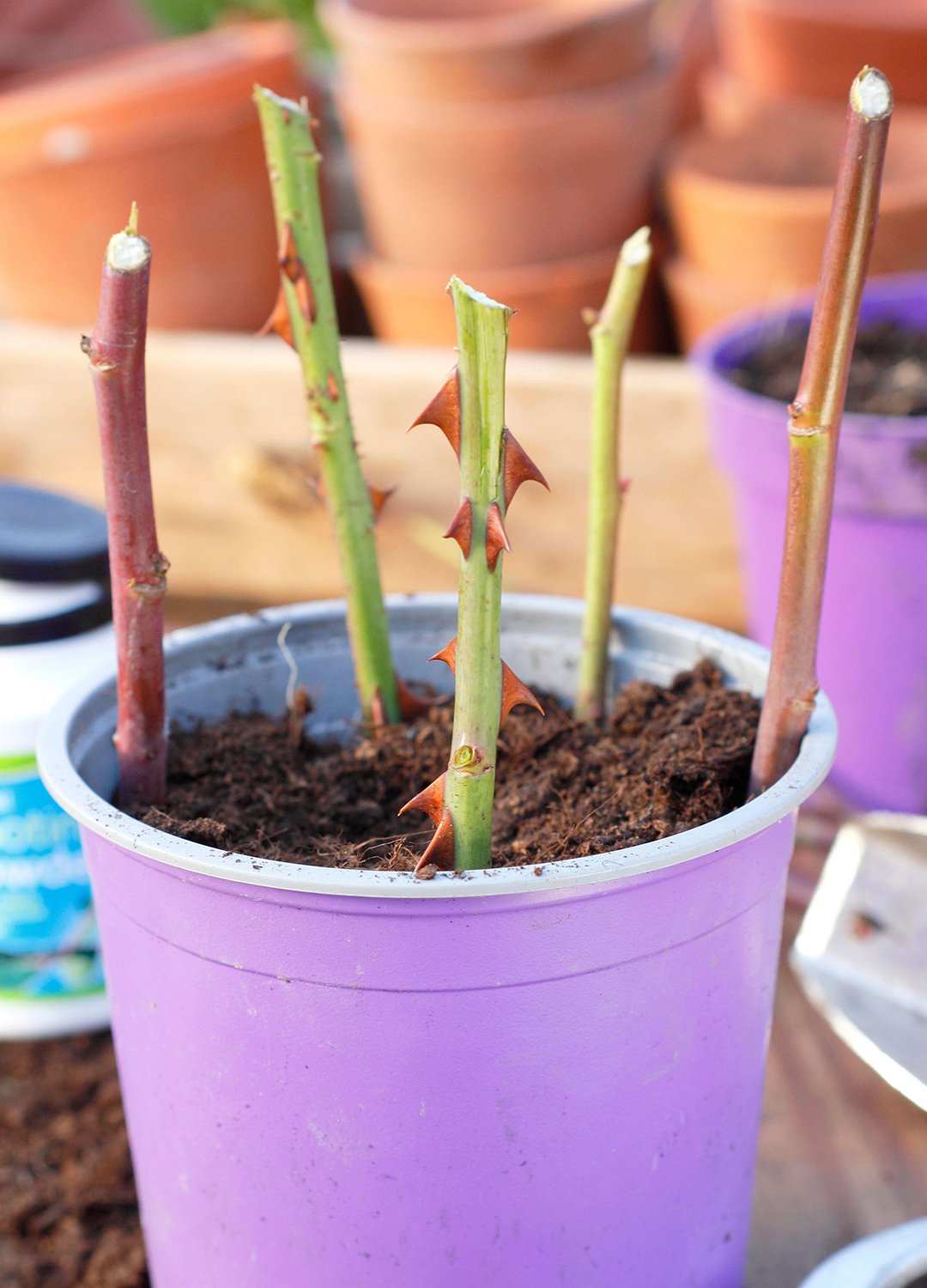
Once you've taken your hardwood cuttings, you have two options; you can either plant them up in pots or, if you fancy popping them straight into your cottage garden, in the ground itself.
"If you go for the former, you'll want to fill a pot with a mix of compost and grit for drainage, and then pop in your cutting, making sure about two-thirds of its length is covered by the soil," says Christopher.
The latter requires a sheltered spot with well-draining soil, he adds, noting that you should "plant the cuttings at an angle, leaving one or two buds above the soil and taking care to space them about 6 inches apart."
5. Show them some TLC
Thankfully, hardwood cutting are pretty low maintenance, so long as you take care to water them immediately after planting, as this helps them to get established.
If you are planting them outdoors from the get-go, you'll want to cover them with horticultural fleece or pop them in a cold frame to protect from wintry frosts.
6. Be patient
The most important thing to remember when learning how to take hardwood cuttings is this: they take a while to get going. Patience is required.
"All being well, your rooted cuttings should be ready to plant in their permanent location come autumn next year!" says Christopher.
FAQs
When should hardwood cuttings be taken?
Hardwood cuttings should be taken in the late autumn/early winter. "Timing is everything when it comes to taking hardwood cuttings, as you want to hit that sweet spot – just after the leaves have dropped but before the first hard frost," says Christopher O'Donoghue of Gardens Revived.
What is the best method for rooting hardwood cuttings?
According to Monty Don, the best method for rooting hardwood cuttings is to "place the cuttings so only one-third is above soil level in a deep pot filled with very gritty compost (4 or 5 can fit into each pot) or outside in a narrow trench backfilled with gritty sand to ensure good drainage".
Water them well once a week and leave them alone until the following autumn, and you're guaranteed a good chance of success.
Now that you know how to take hardwood cuttings, you can set to work filling your garden with wonderful plants... for free. Don't say we never treat you, OK?

Kayleigh Dray is an experienced writer and editor within the world of digital journalism. She kicked off her career in magazines with Cosmopolitan as a news writer. Kayleigh then went on to become part of the digital editorial team at Closer, before a successful seven-year stint at Stylist, where she took command as the site’s editor and editor-at-large.
Nowadays, Kayleigh can be found freelancing for a myriad of titles including Woman & Home, along with a role at Ideal Home where she waxes lyrical about her true love: gardening. She is currently giving her own backyard a woodland-inspired makeover – and there have been whispers of a vegetable plot, too.